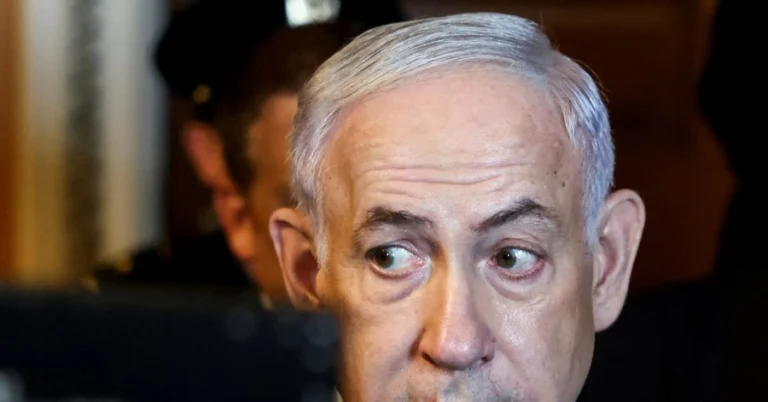Netanyahu Accused of Fueling Gaza War to Stay in Power and Stall Corruption Trial
Netanyahu is accused of dragging out the war in Gaza to delay elections and avoid facing corruption charges, as most Israelis call for an end to the conflict and his support continues to collapse.

Amid public anger and legal pressure, Netanyahu faces allegations of weaponizing the Gaza war to avoid accountability. Photo: @Reuters
July 21, 2025 Hour: 4:08 am
Netanyahu is under fire for allegedly prolonging the Gaza war to secure his political future, as he delays his corruption trial on health grounds amid plummeting public trust.
RELATED:
UNRWA: Blocking Aid to Gaza Is Driving a Man-Made Famine
Israeli Prime Minister Benjamin Netanyahu is facing growing accusations of using the war in Gaza to safeguard his political survival. Former Defense Minister Avigdor Lieberman told public broadcaster KAN that Netanyahu is “intentionally prolonging the war” to delay domestic political fallout and avoid elections.
Lieberman warned that Netanyahu aims to extend the conflict until the next election cycle, leveraging the war to maintain power. While he did not clarify whether this refers to regularly scheduled elections in 2026 or a potential snap vote, he noted the prime minister “does not want to release the captives or end the war.”
The remarks come as indirect negotiations between Israel and Hamas continue in Doha. The talks, aimed at reaching a ceasefire and prisoner exchange, have seen little progress. According to Israeli and Palestinian sources, Netanyahu has resisted key proposals, seeing continued military operations as politically beneficial.
Former Shin Bet chief Ronen Bar and other senior Israeli officials have acknowledged that extending the war could strengthen Netanyahu’s grip on power. Netanyahu himself has repeatedly argued that military pressure is the only way to secure the release of captives still held in Gaza—a claim Hamas has categorically rejected.
While war rages, Netanyahu’s legal troubles persist. His latest court hearing was postponed after he claimed to be suffering from food poisoning. His office reported intestinal inflammation and dehydration from spoiled food, and that he is currently receiving intravenous fluids at home.
Netanyahu, 75, faces multiple charges of bribery, fraud, and breach of trust in three major cases. These involve allegations of accepting lavish gifts (Case 1000), attempting to manipulate media coverage (Case 2000), and providing regulatory favors to a telecom giant in exchange for positive reporting (Case 4000).
At the same time, public confidence in his leadership has reached new lows. A recent Maariv poll found that 66% of Israelis have lost hope in the country’s future, citing dissatisfaction with government policies over the past two years. Even among Netanyahu’s base, discontent is rising: 48% of coalition voters and 59% of self-identified right-wing Israelis share this pessimism.
The survey also shows that 73% of respondents want the war in Gaza to end and captives to be returned, while 81% believe social cohesion has eroded, 78% see democracy as weakening, and 86% say socio-economic conditions are deteriorating. The ongoing war, launched in October 2023, has killed more than 58,800 Palestinians, the vast majority women and children.
A significant portion of the public is actively resisting. According to the poll, 35% of Israelis have participated in protests over the past year—calling for an end to the war, equitable military conscription, prisoner exchanges, and opposition to Netanyahu’s judicial reforms.
As pressure mounts at home and abroad, Netanyahu’s use of war as a political shield is drawing increased scrutiny. With tens of thousands dead in Gaza and his domestic support crumbling, the strategy of prolonging conflict for personal gain may be approaching a breaking point.
Author: MK
Source: Hispan TV





